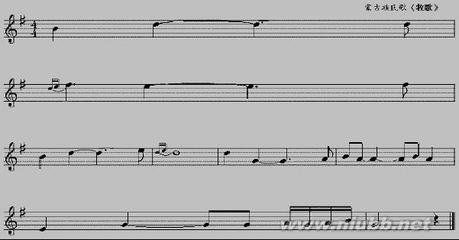读懂单词再记忆:iceberg(冰山)和hamburger(汉堡包)
友情提示:把hamburger分解成h,a,m,b,u,r,g,e,r,您至少30年都无法真正解决单词问题。
iceberg[5aisbE^]n.冰山(ice+berg)
-berg是德语名词后缀,表“山”
hamburger[5hAmbE:^E]n.<</SPAN>美> 碎牛肉, 牛肉饼, 汉堡包(ham+burg+er)
Hamburg[5hAmbE:^]汉堡(德国西北部一城市)(Ham+burg)
burg源自古英语burg [设堡城镇],在德语中-burg表“镇、村”等后缀。大家可以看出德语和英语的关系吗?
burg相当于现代英语中的borough:

borough[5bQrE]n.自治的市镇, 区
强烈建议大家经常听听《Scarborough Fair》:
http://player.youku.com/player.php/sid/XMTAwMTk5NDg0/v.swf
hamlet[5hAmlit]n.小村, 部落(ham+let)
-let, -et, -ett指小后缀
Hamlet[5hAmlit]哈姆雷特(莎士比亚悲剧剧名及该剧的主人公)
下面的内容请大概地读一读:
German names from prehistoric and medievaltimes
Suffixes
1.-ach, ("river"). Examples: Echternach, Salzach.
2.-au, -aue (related to rivers or water),see German words Au or Aue.
在法语中eau表“水”,beau表“美”。
This meaning of -au (earlierspelling ow, owe, ouwe) describes settlementsby streams and rivers. Example: Passau, a town Aue, rivers named Aue.
3.-bach or Low German -bek ("stream","beck"). Examples: Amorbach, Reinbek, Wandsbek
4.-brücken or -brück ("bridge"). Examples:Saarbrücken, Osnabrück, Innsbruck.
5.-bühl, or -bühel ("hill"). Examples:Dinkelsbühl, Kitzbühel
6.-burg ("keep", borough). Examples:Hamburg, Luxembourg,Regensburg (on theriver Regen), Salzburg ("Salt City",a Medieval name), Straßburg(Strasbourg).
Regensburg[`reI^EnsbJrk,-b:^]雷根斯堡[德意志联邦共和国东南部城市](Regens+burg)
reg在拉丁语中表“统治”,请复习regular
Regina[ri5dVainE]n.女王
7.-berg ("mountain"). Examples: Heidelberg, Nürnberg (Nuremberg),Königsberg("king's mountain", now Kaliningrad)
Heidelberg[5haidlbE:^]海德尔堡[德意志联邦共和国西南部城市](heidel+berg)
8.-dorf or -torf ("village"). Example:Düsseldorf.
9.-feld or -felde ("field"). Examples:Bielefeld, Mansfeld.
10.-furt ("ford"). Examples: Erfurt, Frankfurt.
11.-hagen ("hedged field or wood"). Example:Hanshagen
12.-halde oder -halden ("hillside", "slope";cognate to Norwegian Halden). Examples: Haldensee, Osshalden near Crailsheim
13.-heim (South and Central Germany, Switzerland,Alsace), -ham / -am(Bavaria and Austria), -hem / -em (West), -um(North Germany) (all cognate to English home and the Englishplace name suffix -ham). Examples: Alkersum, Bochum, Borkum, Pforzheim, Kirchham, Schiltigheim, Mannheim, Bad Windsheim
14.-haven, or -hafen ("harbour", "port","haven"). Examples: Wilhelmshaven, Bremerhaven, Friedrichshafen
15.-hof or -hofen ("farmhouse(s)").Examples: Diedenhofen (Thionville), Bechhofen
16.-hufe ("hide"). Example: Grünhufe.
17.-hut ("guard"). Examples: Landshut, Waldshut
18.-hausen ("houses"). Examples:Mülhausen (Mulhouse), Mühlhausen, Schaffhausen.
19.-ing or -ingen, -ungen, -ung, -ens(meaning "descendants of", used with a personal name as the firstpart; cognate to the English place name suffix -ing as in Reading). Examples: Göttingen, Straubing, Esens.
20.-kirchen or -kirch ("church"). Examples:Neunkirchen, Feldkirch.
21.Low German -oog (Northwest) or-öhe, -oie, -ee (Northeast) (= "smallisland"). Examples: Dutch Schiermonnikoog, Hiddensee.
22.-roth, -rath, -rode, -reuth, or -rade("clearing"). Examples: Roth, Wernigerode, Overath. It can also be used as theprefix Rade-: Radebeul, Radevormwald.
23.-stadt, -stedt, -stätt, or-stetten ("settlement", "town", "place"; cognate to theEnglish place name suffix -stead as in Walstead). Examples: Darmstadt, Neustadt, Eichstätt.
24.-tal or -thal ("valley", "dale").Examples: Wuppertal, Roßtal, St. Joachimsthal
25.-wald or -walde ("forest"). Examples:Greifswald, Regenwalde
26.-wang, -wangen, or -wängle("meadow"; cognate to Norwegian Vang). Examples: Feuchtwangen, Ellwangen, Nesselwängle
27.-wend, or -winden (meaning smallSlavic settlements in Germanicsurroundings). Examples: Bernhardwinden near Ansbach, Wenden near Ebhausen
28.-werth, -wörth, or -ort ("island","holm"). Example: Kaiserswerth, Donauwörth, Ruhrort
Prefixes
1.Alt-, Alten- or Low German Olden-("old"). Examples: Alt Eberstein, Altenberg, Oldenburg
2.Groß- or Großen- ("greater"). Example:Groß Kiesow, Großenhain
3.Hoh-, Hohen-, Höch- orHoch- ("high(er)", "upper"). Examples: Hohenschönhausen, Hohkönigsburg, Höchstadt
4.Klein- or Low German Lütten- ("little").Example: Klein Kiesow
5.Neu-, Neuen- or Low German Nien-("new"). Example: Neuburg am Inn, Neuenkirchen, Nienburg
只要明白Neu-表“新”,Burg表“城堡”,您绝对用不着再“背”Neuburg就可以轻松掌握它。
6.Nieder- ("lower"; cognate to the English place nameprefix "nether"). Example: Niederschönhausen
7.Ober- ("upper", "higher"), or Oberst-("uppermost", "highest"). Example: Oberhausen, Oberwesel, Oberstdorf
Oberhausen[`EJbEr9haJzEn]奥伯豪森[德意志联邦共和国西部城市](ober+hausen)
Haus在德语中表“房子”,相当于英语中的house。
8.Wendisch-, Windisch- (Slovene) ("Wendish") .Example: Wendisch Baggendorf, Windischgarsten. This sometimes refers(particularly in present and former Austrian territories) to theoriginal language of the inhabitants. Other examples: BöhmischKrummau (Česky Krumlov), Unter-Deutschau (NemškaLoka).
9.Unter- ("lower"; literally "under"). Example:Unterliederbach
Attachments
Sometimes a descriptive wordis attached to a new settlement, that wasonce budding of anotherone and except forthe attached word has the samename.
1.(...)-Siedlung ("settlement")
2.(...)-Hof ("farm"), sometimes carrying an additionalroman number (e.g. Sanz Hof IV)
3.(...)-Ausbau ("expansion")
Also, a river or the provincecan be attached to a settlement to distinguish it from a (even distant) one carrying the samename.
The distinguishing wordis added in parentheses or connected to thename by an der, am, ob der ("at"),auf ("upon") or in, im ("in"), orseparated by abackslash.
backslash[5bAkdlAF]反斜线符号(back+slash)
slash[slAF]v.猛砍, 鞭打
请复习flash。
Examples are Frankfurt an der Oder (also writtenFrankfurt (Oder), Frankfurt a.d. Oder,Frankfurt/Oder, Frankfurt/O.), Rothenburg ob der Tauber, Bergen auf Rügen (also written Bergen(Rügen)) and Lauenburg in Pommern (also Lauenburgi.Pom.), Neustadt / Saale, Neustadt an der Waldnaab, Kochel amSee, Lindau im Bodensee, Weilheim unter Teck, etc.
Others
The old Germanic Gaue districts were established by Charlemagne;earlier German spellings were Gowe, Gouwe. One can stillfind the old Gouwe (Gau) for example in Haspengouw(Dutch name of Hesbaye) or Gäu as in Allgäu.
German names from moderntimes
They usually follow the establishedpatterns.
German placenames deriving from otherlanguages
1.Celtic names, used in prehistoric times in the southern andwestern parts of the German language area. Examples: Mainz (from Latin Moguntiacum,derived from a Celtic name), Remagen (from Celtic Rigomagos"king's field", Latinised as Rigomagus), Wien (Vienna) (from CelticWindobona "fair bottom country" [Latinised asVindobona] or Celtic Wedunia "forest brook"[Latinised as Vedunia]), Zürich (Zurich) (from the Celtic wordturicon, derived from turus; the antique name of thetown in its Romanized form was Turicum.)
2.Latin names:
ofrom classical times, when the southern andwestern parts of the German language area belonged to the Roman Empire. Examples: Koblenz (from Confluentes "joiningrivers"), Köln (Cologne) (from Colonia"colony"), Aachen (from Aquae "springs"),Augsburg and Augst (from Augusta "city ofAugustus" and the Germanic suffix-burg).
ofrom medieval times, when Latin was thelanguage of church and administration. Examples: München (Munich) (from monachus,"monk", ultimately from Greekμοναχός - monachos), Münster (from monasterium,"monastery", ultimately from Greekμοναστήριον - monastērion), Neumünster, Fraumünster, Grossmünster. See also minster.
3.Slavic names: Prior to the medieval Ostsiedlung, Slavic languages like Polabian, Sorbian, Pomeranian, and Slovenian were spoken in the easternparts of the Holy Roman Empire. The German settlersand administration in many cases adopted existing Wendish placenames, for example Rostock (from Old Polabian rostok,"river fork"), Dresden (from SorbianDrežďany), and Berlin (possibly from a Polabian wordmeaning "Swamp"). For the same reason, many German placenamesending in -anz (e.g. Ummanz), -gard (e.g. Burg Stargard), -gast (e.g.Wolgast), -itz (e.g. Lancken-Granitz), -ow (e.g.Gützkow), and -vitz or-witz (e.g. Malschwitz) have Slavic roots. Due tospelling and pronunciation changes over the centuries, the originalWendish term in most cases is not preserved. Also, some placenamescombine a German with a Wendish term (e.g. Altentreptow). The German suffix-au can be related to the Slavic-ow and -ov when derived from the Old German spelling(u= w =double u; e.g. Prenzlau was earlier spelledPrenzlow).
 爱华网
爱华网



